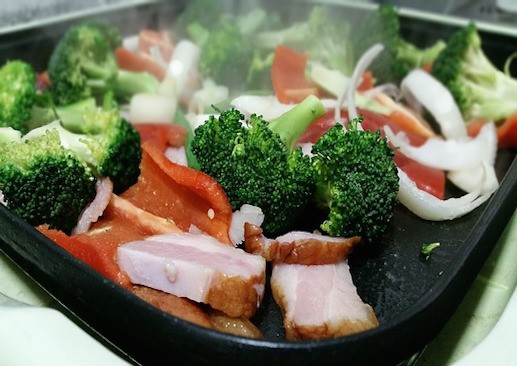Subscription services are the talk of the gourmet food industry. Customers sign up for a box that arrives on a regular basis, packed with ingredients, recipes and tools.
They’ve been sold by everyone from healthy food purveyors such as Blue Apron to New Orleans’ chef John Besh, whose short-lived subscription venture ended in a lawsuit.
As the kinks get worked out of the food subscription business, experts are stressing the advantages that the boxes might provide.
Darby Hughes, brand strategy director at Quench, a food and beverage brand-building boutique agency, said there are four main draws for subscription boxes.
The first: a perceived cost savings. Of course, it’s easy to save money at the supermarket with coupons and specials, but a number of people say they don’t have the time.
“Many consumers believe that they will be getting a deal by choosing to pay for the monthly subscription service as opposed to buying each item individually,” said Hughes.
A second is the all-inclusive package.”Instead of searching for recipes and buying the correct ingredients, many boxes come prepared ready for use, turning you from a fresh amateur to a seasoned pro in minutes,” said Hughes.
Third is a fun factor: the mystery of what you’re getting. “When it arrives on your doorstep, you have a vague understanding of what’s inside, but opening it up is half the fun,” she said.
And, there’s the celebrity factor, too, even though that didn’t save Besh’s boxes.
Why are companies getting into the business? The monthly revenue stream as well as a growing interest in healthy food, as our Micheline Maynard reported last month.
One such player is PersonalTrainerFood.com. Its co-founder, Shane Allen, a certified sports nutritionist and personal trainer, said its customers aren’t just ordering food in an effort to lose weight, but “for convenience and taste. You get great, fresh food delivered but you don’t have to cook.”
PersonalTrainerFood.com offers clients a month’s worth of fresh cooked, flash-frozen meals delivered to their door, with more than 900 different meal combinations online. About 95 of sales are generated through its website.
It has 150,000 customers, said Allen, with the cost depending on what meal plan is selected. Prices range from $329 for 28 days of lunch and dinner to $389 for 28 days of breakfasts, lunches, dinners and snacks.
A typical breakfast is a western omelet and sausage; lunch is a mesquite grilled chicken breast and vegetable mix, while dinner is fajita steak strips and brussels sprouts.
PersonalTrainerFood.com has a pool of 25 investors in the fitness and health industry, said Allen. The company released a letter on July 17 saying it was “testing the waters” to determine investor interest. “If we determine there is enough investor interest we will engage our securities attorney and file with the SEC,” it said.
STORY IDEAS
Check in your local area for companies that are delivering boxes. Also look at websites that highlight food subscription services, and choose some to spotlight. See if any local gyms have partnered with these companies











